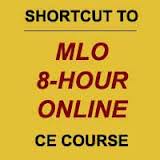Reverse Mortgages FAQ

- How Do Reverse Mortgages Work
- Types of Reverse Mortgage Loans
- How Much Money Can You Borrow
- What Can You Do with the Money
- Long Term Care & Reverse Mortgages
- Purchase a Home with a Reverse Mortgage
- Myths About Reverse Mortgages
- Pros and Cons of Reverse Mortgages
- Social Security & Medicare Benefits
- The Reverse Mortgage Loan Proces
As of 2018
HOW REVERSE MORTGAGES WORK
What is a Reverse Mortgage? A low-interest federally regulated loan that allows senior homeowners to convert a portion of the value in their home into tax-free cash.
Get the Facts. Since your home is probably your largest single investment, you should know more about all your options to decide if a reverse mortgage is right for you.
Our Reverse Mortgage Calculator is only intended to provide an estimate of the maximum amount of available funds from a HECM fixed-rate reverse mortgage loan.
Calculator results cannot be used in place of a Good Faith Quote and is not an offer for credit or approval.
Who Can Qualify for a Reverse Mortgage?
- All Borrowers MUST BE 62 years of age, or older
- Must occupy the home as your principal residence
- Social Security & Medicare benefits are not affected
- No repayment for as long as you occupy your home
2020 FREQUENTLY ASKED QUESTIONS or Reverse Mortgages FAQ
Q. What is a Reverse Mortgage?
A reverse mortgage is a special type of home loan that allows a homeowner convert a portion of the equity in his or her home into cash. The equity built up over years of home mortgage payments can be paid to you. But unlike a traditional home equity loan or second mortgage, no repayment is required until the borrower(s) no longer use the home as their principal residence. HUD’s reverse mortgage provides these benefits, and it is federally-insured as well.
 Q. Can I qualify for a HUD Reverse Mortgage? Oldster
Q. Can I qualify for a HUD Reverse Mortgage? Oldster
To be eligible for a HUD reverse mortgage, HUD’s Federal Housing Administration (FHA) requires that the borrower is a homeowner, 62 years of age or older; own your home outright, or have a low mortgage balance that can be paid off at the closing with proceeds from the reverse loan; and must live in the home. You are further required to receive consumer information from HUD-approved counseling sources prior to obtaining the loan. We will gladly help you obtain the name and telephone number of a HUD-approved counseling agency. There are NO credit, NO income and NO health requirements.
Q. Do I have to pay income tax on the proceeds?
Proceeds received from a reverse mortgage are loan advances and not taxable income. For your specific situation, we recommend that you consult your tax advisor.
Q. Will this income affect my Social Security or Medicare benefits?
NO. Money from a reverse mortgage is not considered income, nor does it affect Social Security or Medicare. Homeowners on SSI or Medicaid should observe pertinent rules.
Q. What types of homes are eligible?
Your home must be a single family dwelling or a two-to-four unit property that you own and occupy. Townhouses, detached homes, units in condominiums and some manufactured homes are eligible. Condominiums must be FHA-approved. It is possible for condominiums to qualify under the Spot Loan program. The home must be in reasonable condition, and must meet HUD minimum property standards. In some cases, home repairs can be made after the closing of a reverse mortgage.
Q. How can I look at my specific situation?
You can evaluate the different reverse mortgages with a no-cost, no-obligation computerized comparison of the available plans. Just fill out the free analysis form and we will contact you shortly.
Q. How much money can I get from my home?
The amount you can borrow depends on your age, the current interest rate, other loan fees, and the appraised value of your home or FHA’s mortgage limits for your area, whichever is less. Generally, the more valuable your home is, the older you are, the lower the interest, the more you can borrow.
Q. How do I receive my money?
You have four options:
- Lump Sum
- Monthly Payment (your choice of loan advances for a specific period, or for as long as you live in your home)
- Line of Credit (unscheduled payments or in installments, at times and in amounts of borrower’s choosing until the line of credit is exhausted)
- Any combination you would like of the above three choices
Q. What’s the difference between a Reverse Mortgage and a bank-originated home equity loan?
With a traditional second mortgage, or a home equity line of credit, you must have sufficient income versus debt ratio to qualify for the loan, and you are required to make monthly mortgage payments. The reverse mortgage is different in that it pays you, and is available regardless of your current income. The amount you can borrow depends on your age, the current interest rate, other loan fees, and the appraised value of your home or FHA’s mortgage limits for your area, whichever is less. Generally, the more valuable your home is, the older you are, the lower the interest, the more you can borrow. You don’t make payments, because the loan is not due as long as the house is your principal residence. Like all homeowners, you still are required to pay your real estate taxes and other conventional payments like utilities, but with an FHA-insured HUD Reverse Mortgage, you cannot be foreclosed or forced to vacate your house because you “missed your mortgage payment.”
Q. Can the lender take my home away if I outlive the loan?
No! Nor is the loan due. You do not need to repay the loan as long as you or one of the borrowers (ex. spouse) continues to live in the house and keeps the taxes and insurance current. You can never owe more than your home’s value.
Q. Will I still have an estate that I can leave to my heirs?
When you sell your home or no longer use it for your primary residence, you or your estate will repay the cash you received from the reverse mortgage, plus interest and other fees, to the lender. The remaining equity in your home, if any, belongs to you or to your heirs. None of your other assets will be affected by HUD’s reverse mortgage loan. This debt will never be passed along to the estate or heirs.
Q. What are the “Out of Pocket Costs”?
Typically there is only one, an application fee that includes the cost of an appraisal. (Other loan costs may be financed into your Reverse Mortgage).
Q. Can I apply if I didn’t buy my present house with FHA mortgage insurance?
Yes. While your property must meet HUD minimum property standards, it doesn’t matter if you didn’t buy it with an FHA-insured mortgage. Your new HUD reverse mortgage will be a new FHA-insured mortgage loan.
What you do with the money is up to you! Call us now to answer any questions you may have at 310-737-8420





